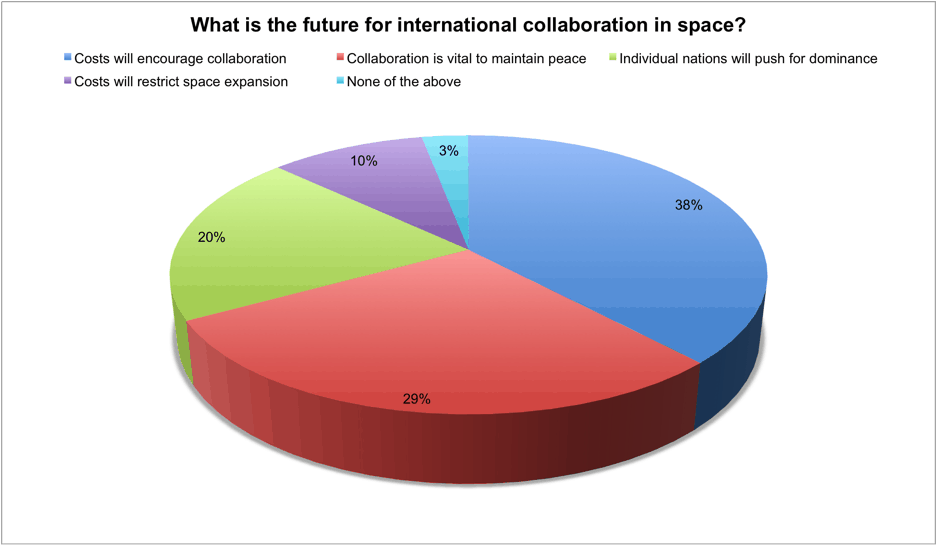
Last week we asked about the future of international collaboration in space, with a fifth of respondents believing that individual nations will push for dominance beyond Earth’s atmosphere.
Two poll options were formed around collaboration, with 38 per cent taking the view that costs will encourage such endeavour, and 29 per cent agreeing that partnerships will help to maintain peace in space.
Of the remaining vote, 10 per cent thought expansion in space would be restricted by costs, and three per cent couldn't find a fit with the options presented. What do you think? Let us know via Comments below.

Background:
Last week we received a notification outlining proposals for international collaboration on an “armed space platform to defend planet Earth”.
The idea, put forward by Russian engineer and businessman Dr Igor Ashurbeyli, would involve an off-planet unmanned platform to defend Earth from external threats such as asteroids and solar storms, as well as autonomously policing actions such as ballistic missile strikes between nations.
While it seems highly unlikely that the world’s major military powers would be willing to hand over such control, it did get us thinking about collaboration in space. The International Space Station has been a major success in this regard, with Tim Peake previously expressing support for the project’s consideration for the Nobel Peace Prize.
But with the ISS set for decommissioning in 2020, and the various space powers developing plans for their own stations, the future of international collaboration in space does not look so promising.





Red Bull makes hydrogen fuel cell play with AVL
Many a true word spoken in jest. "<i><b>Surely EVs are the best solution for motor sports</b></i>?" Naturally, two electric motors demonstrably...